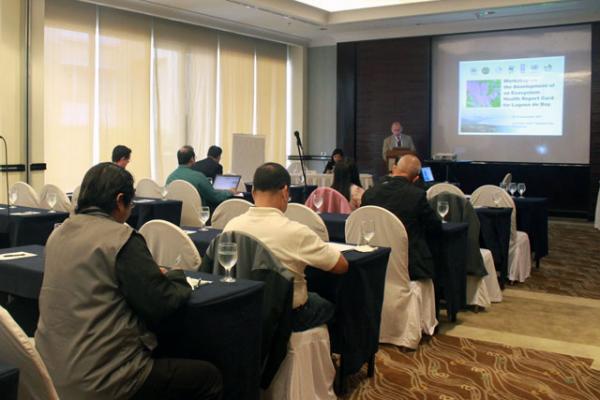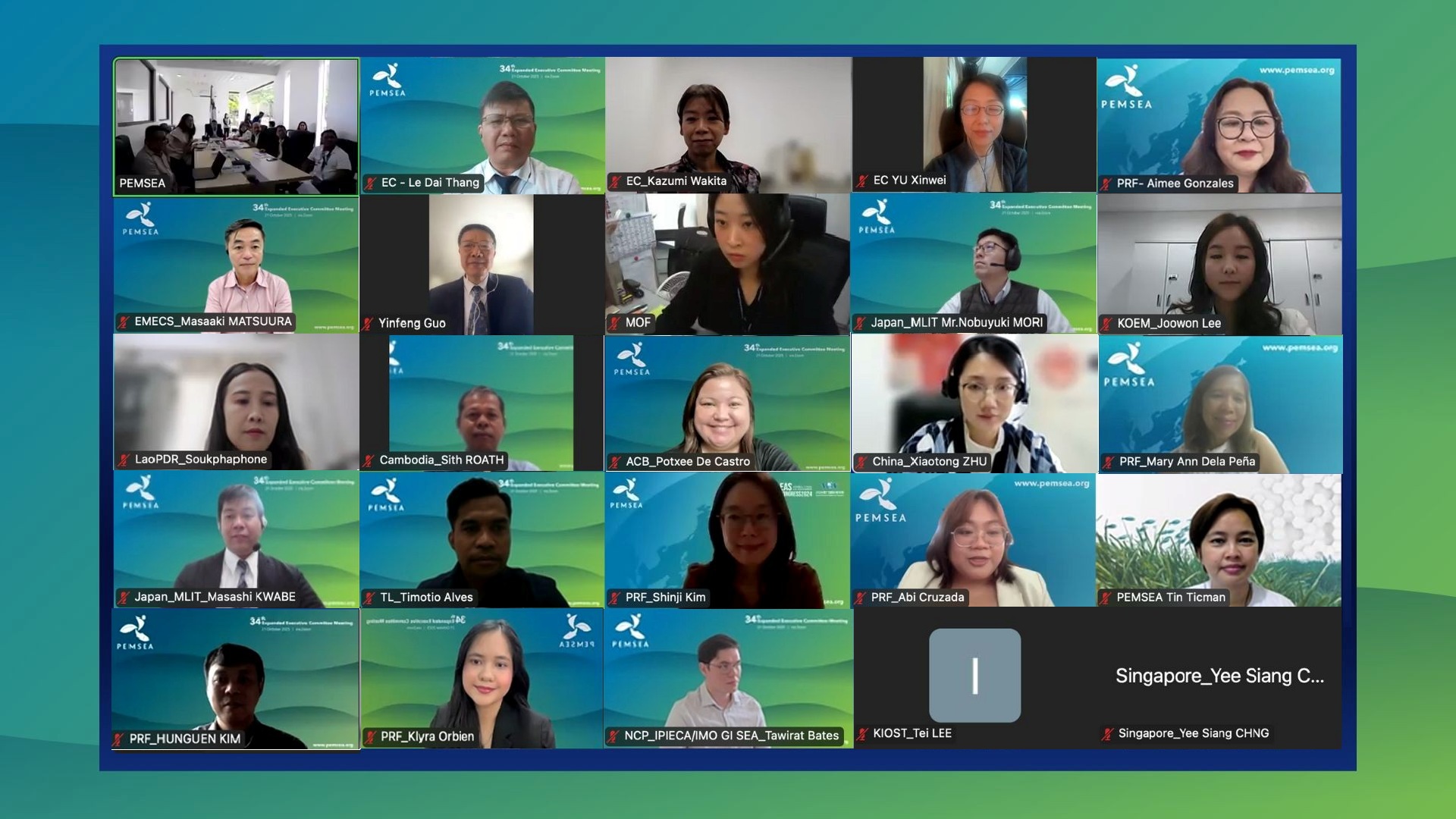PEMSEA & LLDA Take Initial Steps to Develop Laguna de Bay Report Card
Wednesday, 19 February 2014

Tagaytay City, Philippines — PEMSEA and the Laguna Lake Development Authority (LLDA) have commenced the development of an ecosystem nutrient health report for Laguna de Bay through an orientation workshop held last 12–13 December 2013. The two-day workshop gathered participants from the Philippines representing government agencies involved in the management of the country's largest lake.
The joint effort between PEMSEA and the LLDA targets to assess the ecological status of Laguna de Bay and, consequently, guide decisionmakers for improved lake basin management through an ecosystem health card. The initiative is part of the UNEP/GEF Project on Global Foundations for Reducing Nutrient Enrichment and Oxygen Depletion from Land-based Pollution in Support of Global Nutrient Cycle.
The orientation workshop was organized to provide context and discuss existing strategies in developing ecosystem health report cards. The Chesapeake Bay Report Card in the United States and the Chilika Lake Report Card in India were used as case studies to guide initial discussions for the Laguna de Bay Report Card. Representatives from the United Nations Environment Programme-Global Programme of Action for the Protection of the Marine Environment from Land-based Activities (UNEP-GPA), National Centre for Sustainable Coastal Management of the Indian Ministry of Environment and Forests, University of Maryland Center for Environmental Science (UMCES) and Chilika Development Authority were invited as resource speakers.
Through the focused discussions, the participants identified the target audience for the health report card and defined the appropriate indicators and methodologies (e.g., sources of data, thresholds and responsible agencies) in assessing the values and threats to Laguna de Bay.
The participants also agreed on linking these ecological data with socioeconomic indicators and have outlined a plan for communicating the resulting health report card to relevant stakeholders. Among the key messages that may be conveyed through the health report card include: (a) improving sewerage and waste management initiatives; (b) eliminating invasive species and cultivating endemic species such as ayungin (Therapon plumbeus); (c) strengthening the linkages and cooperation among sectors; (d) promoting corporate social responsibility; and (e) diversifying livelihood to reduce reliance on the lake.




